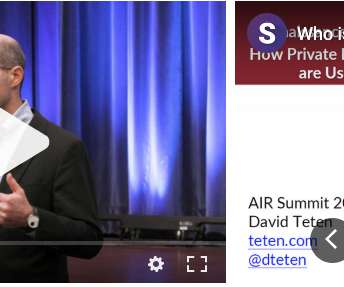Seed Stage Funding 101: What it Is & How it Works
The Startup Magazine
AUGUST 11, 2023
This could be a proportion of the company’s equity or investment; in other instances, it could be a portion of its later-stage profits. Seed money can range from a relatively modest sum to a sizeable one, depending not only on the nature of the startup, the sector in which it will operate, and any other pertinent business aspects.















Let's personalize your content